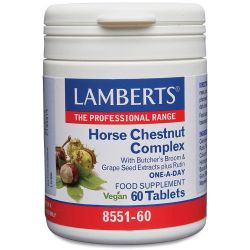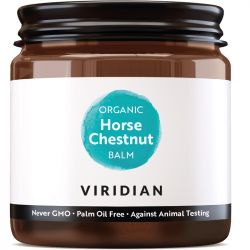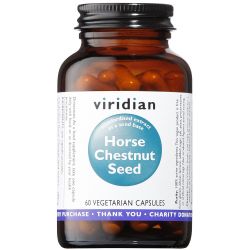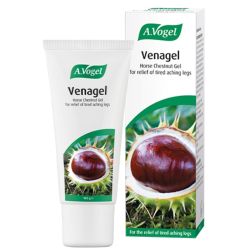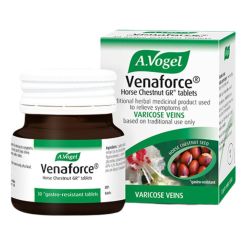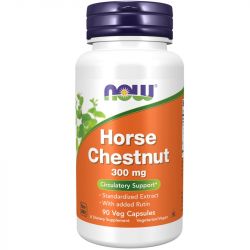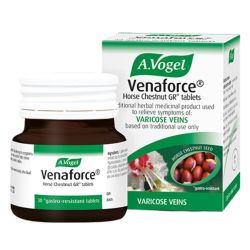Horse chestnut supplements
Horse chestnut, scientifically known as Aesculus hippocastanum, is a deciduous tree native to the Balkans but widely cultivated across Europe and North America. The seeds of the horse chestnut tree are known for their potential medicinal properties, particularly in relation to vascular health.
Traditionally, horse chestnut extract has been used to alleviate symptoms of chronic venous insufficiency (CVI), such as varicose veins and swollen legs. The active compound, aescin, is believed to strengthen blood vessel walls, reduce inflammation, and improve blood circulation.
All you need to know about Horse Chestnut
How does horse chestnut help with varicose veins?
Horse chestnut is known for its ability to strengthen blood vessel walls and improve venous tone, which can help alleviate symptoms associated with varicose veins, such as swelling, pain, and discomfort. Its anti-inflammatory properties also reduce swelling and promote better blood circulation.
What is the role of aescin in horse chestnut's effectiveness?
Aescin is the primary active compound in horse chestnut that contributes to its medicinal benefits. It works by reducing inflammation, improving blood flow, and preventing the leakage of fluid from blood vessels, making it effective for managing CVI symptoms.
Are there any side effects associated with horse chestnut?
Horse chestnut is generally safe for most individuals when used appropriately; however, some may experience side effects such as gastrointestinal upset, headache, or dizziness. It is important to avoid raw horse chestnut seeds, as they are toxic and can cause serious side effects.
How long does it take to see benefits from horse chestnut?
Users may begin to notice improvements in symptoms of chronic venous insufficiency, such as reduced swelling and discomfort, within a few weeks of consistent use. However, individual responses can vary based on health conditions and dosage.
Can horse chestnut help with leg swelling?
Horse chestnut is often used to reduce leg swelling associated with venous insufficiency. Its anti-inflammatory effects and ability to improve circulation can lead to a noticeable reduction in swelling over time.
What is the best way to consume horse chestnut for vascular health?
Horse chestnut can be taken in various forms, including capsules, tinctures, and topical creams. For systemic benefits related to vascular health, oral supplements are recommended, while creams can be applied directly to affected areas for localised relief.
Does horse chestnut interact with other medications?
Yes, horse chestnut may interact with certain medications, particularly anticoagulants and blood thinners, due to its potential effects on blood circulation. It’s essential to consult a healthcare provider before starting horse chestnut supplementation if you are on medication.
How does horse chestnut support overall circulatory health?
Horse chestnut may help to support overall circulatory health by improving blood flow and reducing inflammation in blood vessels. This can lead to enhanced oxygen and nutrient delivery throughout the body, contributing to better vascular function.
Is horse chestnut effective for managing symptoms of haemorrhoids?
Some studies suggest that horse chestnut may help alleviate symptoms of haemorrhoids due to its anti-inflammatory properties and ability to strengthen blood vessels. It can reduce swelling and discomfort associated with this condition.

